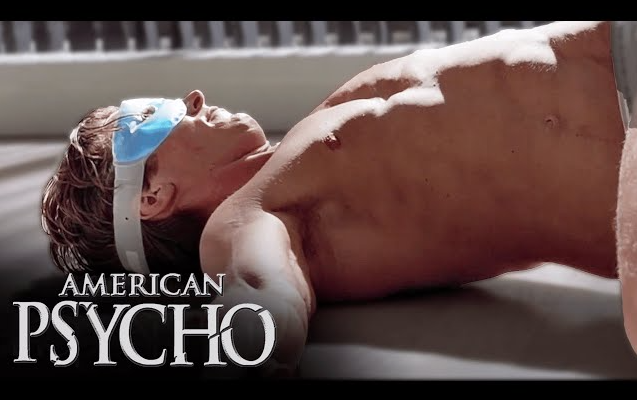In “American Psycho,” directed by Mary Harron and based on Bret Easton Ellis’s novel, the morning routine of Patrick Bateman, played by Christian Bale, serves as a chilling reflection of his character and the excesses of 1980s yuppie culture. The film opens with Bateman’s meticulous grooming regimen, highlighting both his obsession with appearance and the superficiality that defines his life.
Bateman begins his day in a sleek, modern apartment filled with designer decor, which sets the tone for his privileged lifestyle. The camera lingers on an array of high-end grooming products, emphasizing the importance he places on his outward image. As he applies various skincare products, his voiceover reveals his inner thoughts, combining a sense of self-absorption with an unsettling detachment from reality. He speaks in a monotone, calculating manner, mirroring the clinical precision of his grooming rituals.
Every detail of his morning routine is meticulously choreographed. From his choice of designer suits to the specific order in which he applies his products, each step is about projecting an idealized version of himself. The routine culminates in his morning workout, further underscoring his obsession with physical perfection. This emphasis on body image contrasts sharply with the darkness of his true self, hinting at the violent tendencies lurking beneath his polished exterior.
The soundtrack, filled with upbeat 1980s pop music, juxtaposes the grim realities of Bateman’s life with the cheerful facade he presents to the world. While he engages in his morning rituals, the viewer is aware of the dissonance between his surface-level perfection and his inner turmoil. This tension is a central theme of the film, reflecting the emptiness of a lifestyle consumed by consumerism and status.
Throughout the routine, the film employs visual and auditory techniques that heighten the surreal atmosphere. Quick cuts and exaggerated sound effects create a sense of detachment, almost like a commercial, reinforcing the idea that Bateman views life as a performance. His obsession with brands and appearances illustrates the broader critique of a society that prioritizes superficiality over authenticity.
Ultimately, Bateman’s morning routine is not just a reflection of his character; it serves as a microcosm of the moral vacuity of the era. The film critiques a culture obsessed with wealth and status, where individuals are reduced to their appearances. Bateman’s chilling detachment, revealed through his morning rituals, foreshadows the violence and chaos that lie beneath his carefully constructed surface. As the narrative unfolds, this routine becomes a haunting reminder of the darkness that can lurk behind a polished facade, making “American Psycho” a powerful commentary on the intersection of identity and morality in a consumer-driven world.



